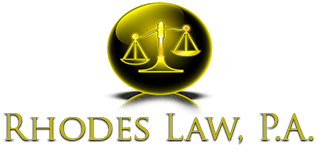Understanding the Need for a Power of Attorney

Understanding the Need for a Power of Attorney
As we age, it is important to consider what would happen if we were no longer able to make decisions for ourselves. This is where a power of attorney comes into play. A power of attorney allows you to designate someone else to make decisions on your behalf should you become incapacitated or unable to do so.
What is a Power of Attorney?
A power of attorney is a legal document that gives another person (the agent) the authority to act on your behalf. There are different types of powers of attorney, including financial and healthcare powers. A financial power of attorney gives your agent the ability to manage your finances and make financial decisions for you. A healthcare power of attorney allows your agent to make medical decisions for you if you are unable.
Financial Powers vs Healthcare Powers
Financial powers can be limited or broad depending on how they're drafted by an elder law attorney in Melbourne, FL whereas Healthcare POAs only come into effect when there's been an incapacity event.
Why Do You Need a Power Of Attorney?
Without a designated power-of-attorney (POA), family members may have difficulty making critical health-care and end-of-life care choices without seeking court intervention which could be costly and time-consuming. It’s also important because many seniors develop dementia or Alzheimer’s disease as they age; these conditions can leave them vulnerable even though their physical abilities remain intact.
The importance cannot be overstated
Designating someone with durable POA ensures that those who love us most will have some control over our future lives when we’re most vulnerable.
How To Designate A Power Of Attorney
To designate a power of attorney, you must create and sign a legal document that meets the requirements in your state. The document should specify what powers you are giving to your agent, when those powers will begin and end, and any limitations on those powers.
Choosing an Agent
When choosing an agent for your POA it's important to choose someone who is trustworthy, reliable, and capable of making decisions in your best interest. This could be a family member or trusted friend but if there’s no one available or willing to serve then hiring an elder law attorney in Melbourne, FL would be recommended.
Choosing An Elder Law Attorney In Melbourne, FL
Choosing the right elder law attorney can make all the difference when it comes to creating a power of attorney. Look for an attorney with experience in estate planning and elder law specifically; they'll have more knowledge about how these documents work than general practitioners might.
Look For Experience And Expertise
An experienced lawyer can help guide you through the process of creating a power-of-attorney (POA) by assessing which type suits your needs best as well as helping you select an appropriate agent.
Contacting An Elder Law Attorney To Designate A Power Of Attorney
If you're ready to designate a power of attorney or just want more information about how this legal tool can benefit seniors like yourself please contact Rhodes Law, P. A. at (321) 610-4542 today! Our team has years of experience working with clients just like you so we know exactly what it takes to create effective POAs that protect both individuals' wishes while keeping their loved ones informed every step of the way.
You might also like




